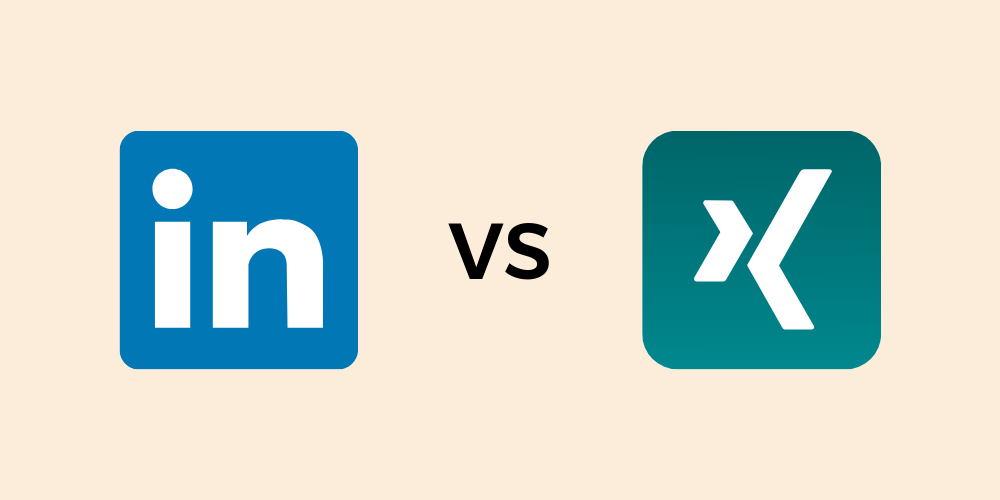LinkedIn and Xing are both professional networking platforms that allow users to connect with colleagues, industry experts, and potential employers. While both platforms serve similar purposes, there are some key differences to consider when deciding which one is right for you.
First, let’s take a closer look at each platform:
LinkedIn:
- LinkedIn is the most well-known and widely used professional networking platform, with over 740 million users in over 200 countries.
- The platform is designed to connect professionals from all industries and allows users to showcase their skills, experience, and accomplishments.
- LinkedIn also offers job search tools, including job postings and the ability to apply directly through the platform.
- In addition to connecting with others, users can also follow companies and industry leaders to stay up-to-date on news and trends.
- LinkedIn has a strong focus on content marketing and features a publishing platform that allows users to share articles and insights with their network.
Xing:
- Xing is a professional networking platform that was originally created for the German market, but has since expanded to include users from around the world.
- Like LinkedIn, Xing allows users to connect with colleagues, industry experts, and potential employers. It also offers job search tools, including job postings and the ability to apply directly through the platform.
- In addition to connecting with others, users can also join groups and participate in discussions related to their industry or interests.
- Xing has a more streamlined design and user interface compared to LinkedIn, which some users may find more intuitive and user-friendly.
Now that we’ve looked at the basics of each platform, let’s compare them:
- Size and reach: LinkedIn is significantly larger than Xing, with over 740 million users compared to Xing’s 15 million. This means that LinkedIn has a wider reach and potentially more job opportunities and connections available.
- Target audience: LinkedIn is geared towards professionals from all industries, while Xing is more popular in Europe and particularly strong in German-speaking countries. If you’re looking to connect with professionals in Europe, Xing may be a better option.
- Job search tools: Both LinkedIn and Xing offer job search tools, including job postings and the ability to apply directly through the platform. However, LinkedIn may have a larger selection of job opportunities available due to its larger user base.
- User interface: As mentioned, Xing has a more streamlined design and user interface compared to LinkedIn. Some users may find this more intuitive and user-friendly, while others may prefer LinkedIn’s more robust feature set.
- Content marketing: LinkedIn has a strong focus on content marketing and features a publishing platform that allows users to share articles and insights with their network. Xing also allows users to share content, but it’s not as heavily emphasized as on LinkedIn.
In conclusion, both LinkedIn and Xing are valuable tools for professionals looking to connect with others and advance their careers.
The platform that’s right for you will depend on your individual needs and goals. If you’re looking to connect with a wider range of professionals and access a larger selection of job opportunities, LinkedIn may be the better choice.
If you’re based in Europe and are particularly interested in connecting with professionals in German-speaking countries, Xing may be a better fit.
Ultimately, it’s worth considering both platforms and deciding which one works best for you.


